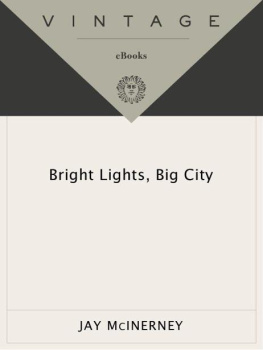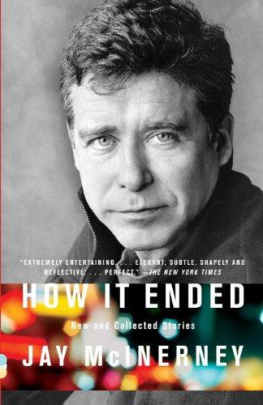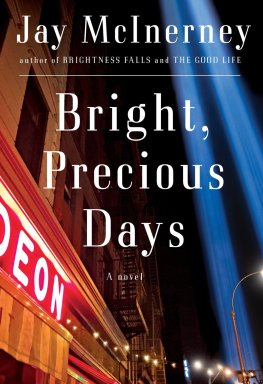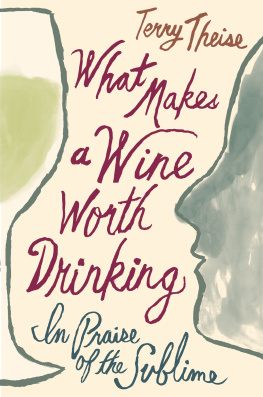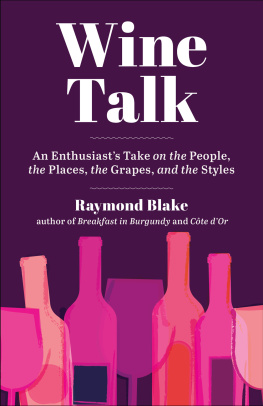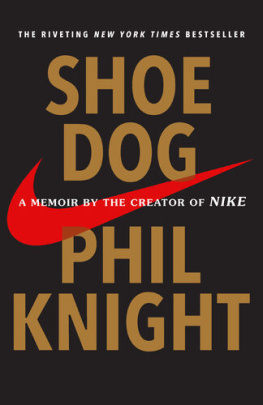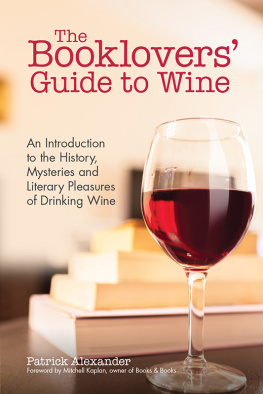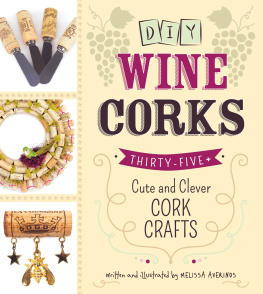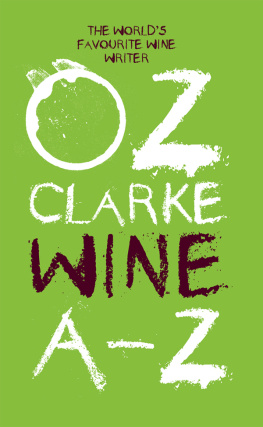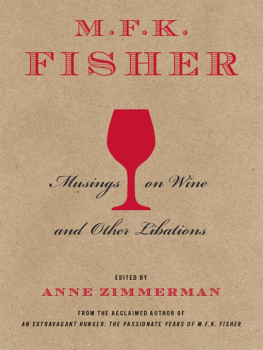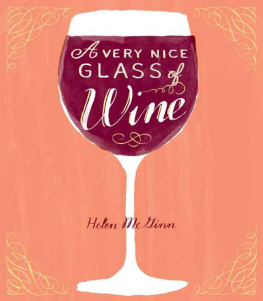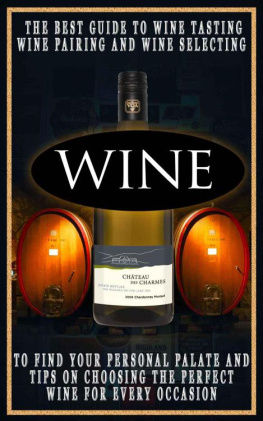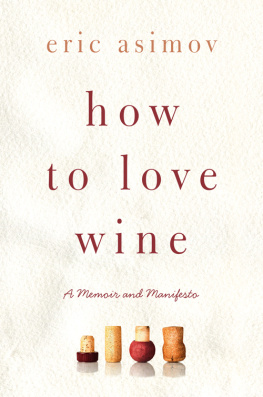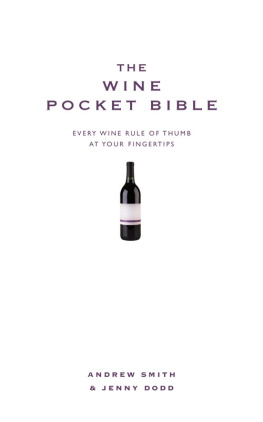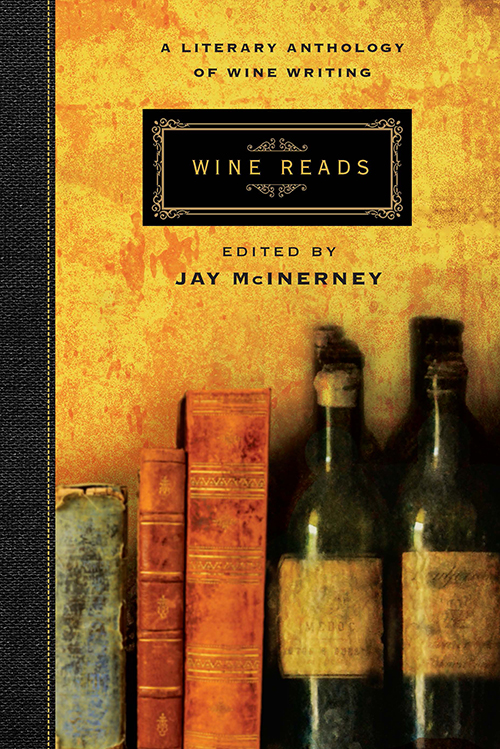A LITERARY ANTHOLOGY OF WINE WRITING
WINE READS
EDITED BY
JAY MCINERNEY

Copyright 2018 by Jay McInerney
Cover design by Gretchen Mergenthaler
Cover photograph: wine bottles Jill Battaglia/arcangel; books MartinFredy/BigStock
All rights reserved. No part of this book may be reproduced in any form or by any electronic or mechanical means, including information storage and retrieval systems, without permission in writing from the publisher, except by a reviewer, who may quote brief passages in a review. Scanning, uploading, and electronic distribution of this book or the facilitation of such without the permission of the publisher is prohibited. Please purchase only authorized electronic editions, and do not participate in or encourage electronic piracy of copyrighted materials. Your support of the authors rights is appreciated. Any member of educational institutions wishing to photocopy part or all of the work for classroom use, or anthology, should send inquiries to Grove Atlantic, 154 West 14th Street, New York, NY 10011 or .
FIRST EDITION
Every effort has been made to trace copyright holders and to obtain their permission for the use of copyright material. The publisher apologizes for any errors or omissions and would be grateful if notified of any corrections that should be incorporated in future reprints or editions of this book.
Published simultaneously in Canada
Printed in the United States of America
First Grove Atlantic hardcover edition: November 2018
This book was set in 12 point Goudy Old Style by
Alpha Design & Composition of Pittsfield, NH
Library of Congress Cataloging-in-Publication data is available for this title.
ISBN 978-0-8021-2883-6
eISBN 978-0-8021-4671-7
Atlantic Monthly Press
an imprint of Grove Atlantic
154 West 14th Street
New York, NY 10011
Distributed by Publishers Group West
groveatlantic.com
18 19 20 21 10 9 8 7 6 5 4 3 2 1
Jay McInerney
The late Giuseppe Quintarelli once told me that Amarone was a wine of contemplation. I was visiting him at his home and winery outside of Verona, and Id asked him what kind of foods might be paired with this complex, autumnal wine made from late harvested grapes that spend several months drying out, essentially becoming raisins before they are pressed and fermented. His answer suggested that Amarone should be enjoyed without food, with nothing to interfere with its appreciation. And while at the time I found his description apt, it subsequently occurred to me that it fits all wines of quality. Not that fine wine should be enjoyed without foodbut that it inevitably inspires contemplation. And, since before the time of Homer, it has inspired commentary ranging in tone from the ecstatic to the analytic. The ancients overwhelmingly favored the former, creating a cult of wine worship centered on Dionysus, whom the Romans adopted as Bacchus. The Greek symposium was inevitably lubricated with wine, and Socrates was clearly a fierce devotee of Bacchus, if not a lush. Writing two millennia later, philosopher Roger Scruton makes the case that wine is conducive to a life of reflection and intellectual adventure in his memoir I Drink Therefore I Am. Socratess crabby disciple Plato was a neo-prohibitionist, but the Greek and Roman poets and playwrights penned innumerable paeans to the stimulating and salutary properties of wine, as did their literary successors from Shakespeare and Keats to Baudelaire and Verlaine. These writers inevitably dwelt more on the effects of wine than on description. Modern commentary has tended more and more toward the analytical, toward an attempt to anatomize and quantify the properties of wine, as opposed to celebrating its effectsalthough Bill Buford, in his short essay included here about La Paule de New York, reminds us of the intoxicating side of oenophilia.
The kind of detailed tasting notes that fill so many contemporary publications were unknown until very recentlyyou wont find lists of flavor descriptors or technical details in George Saintsburys Notes on a Cellar-Book (1920), long regarded as the landmark work of wine commentary in English, though in fact it hasnt aged very well, despite some pithy observations that still ring true. More recently, no one has been more influential in shaping modern wine commentaryand some would say winemakingthan Robert Parker, whose rise to become the preeminent wine critic in the world is documented in Elin McCoys essay on the seminal 1982 Bordeaux vintage, from her biography The Emperor of Wine. Wine critics like Parker perform a valuable service for the consumer, but the writing collected in this volume has been chosen for its narrative and literary qualities; in selecting these readings I undoubtedly favored entertainment and felicity of expression over instruction. Parkers English counterpart, Jancis Robinson, has penned thousands of detailed tasting notes, which I find terribly useful, but she has also written discursively about her adventures in wine, notably an elegant memoir, Tasting Pleasure, which includes a funny and self-deprecating chapter about blind tasting.
Tasting notes, with their laundry lists of flavor analogies, may be a necessary evil, but I wish all wine critics, before penning them, would heed the advice of Auberon Waugh in his essay Perils of Being a Wine-Writer:
My own feeling is that wine writing should be camped up: the writer should never like a wine, he should be in love with it; never find a wine disappointing but identify it as a mortal enemy, an attempt to poison him; sulfuric acid should be discovered where there is the faintest hint of sharpness. Bizarre and improbable side tastes should be proclaimed: mushrooms, rotting wood, black treacle, burned pencils, condensed milk, sewage, the smell of French railway stations or ladies underwearanything to get away from the accepted list of fruit and flowers.
When I first started writing about wine I was pretty ignorant of the details of winemaking and insecure about my knowledge of the field in general; I favored metaphors and analogies over flavor descriptors and technical specifications. I decided that comparing a California Chardonnay to Pamela Anderson, or a Chablis to Kate Moss, was at least as effective, and certainly more entertaining, than talking about new oak, minerality, and PH levels. I also discovered that the wine world is full of colorful and improbable characters; as a novelist I felt fairly confident of my ability to write about them, and as a reader Im fascinated by stories of the eccentrics, the fanatics and the criminals of the wine world. Benjamin Wallaces bestseller The Billionaires Vinegar is bursting with all of the above, as is Maximillian Potters The Assassin in the Vineyard, a true crime story about the poisoning of the worlds greatest vineyard. Edward Steinberg gives us a compelling portrait of one of the worlds great wine personalities, Angelo Gaja. Tilar J. Mazzeo, in The Widow Clicquot, tells the story of one of the great figures of French winemaking, the brilliant and indefatigable woman who created an enduring empire in Champagne in the wake of Napoleons defeat.
The first wine writing I encountered was in novels. My ambition to be a novelist and my interest in wine were both partly inspired by Ernest Hemingways


